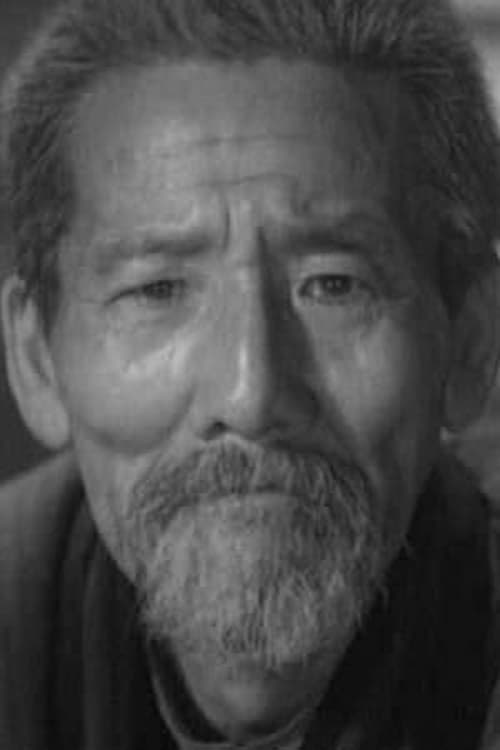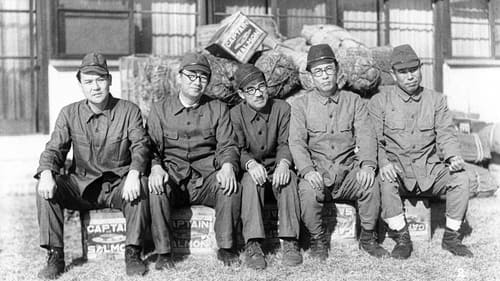
Ryuta and Mineo Komatsu are brothers, both yakuza (gangsters). Mineo, although complicit in crime, even murder, wants out of the gangster life, hoping to become a successful singer instead. Ryuta loves his brother, but Mineo's possible defection presents problems for the gang, and Ryuta realizes he must kill his brother if he wants to survive.
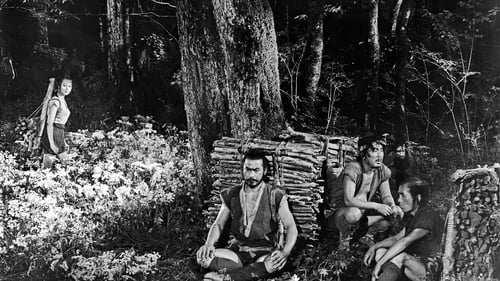
Old man in front of sign (uncredited)
Matashichi (Kamatari Fujiwara) y Tahei (Minoru Chiaki) son dos soldados huidos del conflicto bélico, que buscan el enriquecimiento. Cuando encuentran oro, se dan cuenta de que son vigilados por un silencioso y misterioso hombre, que finalmente resulta ser el célebre general Rokurota Makabe (Toshiro Mifune), quien utilizará a los dos soldados, ignorantes de la identidad de sus acompañantes, para transportar una gran cantidad de oro y liberar a la princesa Yukihime (Misa Uehara). Una divertida comedia de aventuras firmada por el gran Akira Kurosawa, que influyó notablemente en la construcción de personajes de la saga "Star Wars" de George Lucas.
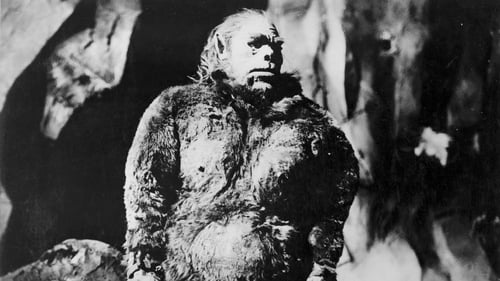
Mountain Tribe Leader
An American scientist tells two colleagues about the finding of an abominable snowman living in the Japanese alps, where it is worshipped by a remote tribe as a god, and how it was discovered by modern man after it raided a ski-ers' shelter following an avalanche, killing all inside. This is an adaptation of the Japanese film Ju Jin Yuki Otoko with added American-made footage, narration and music track.
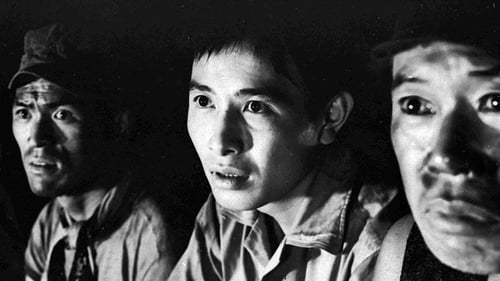
Based on a 1956 television feature on Japan’s national network, NHK, this is one of Uchida’s rarest films. A socially conscious drama with a contemporary backdrop, Dotanba focuses on the attempts to rescue a group of trapped miners. The title is a figure of speech — (essentially “last minute” or “eleventh hour”) — that refers to a situation of peril. The film boasts a script co-written by Uchida and Akira Kurosawa’s frequent screenwriter, Shinobu Hashimoto, and stars Kurosawa’s frequent star Takashi Shimura.
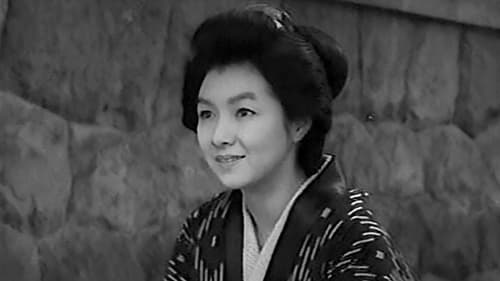
Kinshichi
A woman marries, gives birth to a stillborn child, and divorces, falls in love with a hotel-keeper, only to find herself subordinated to his drive for success, takes up with a tailor who cannot console himself with her strong personality.
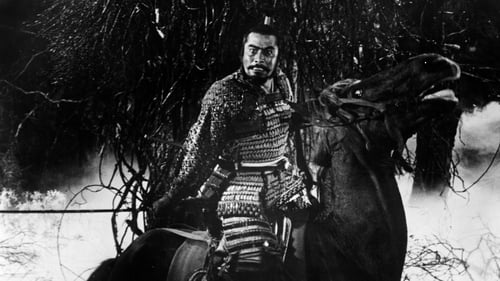
Military Commander
Japón feudal, siglo XVI. Adaptación del "Macbeth" de William Shakespeare. Cuando los generales Taketori Washizu y Yoshaki Miki regresan de una victoriosa batalla, se encuentran en el camino con una extraña anciana, que profetiza que Washizu llegará a ser el señor del Castillo del Norte. A partir de ese momento, su esposa lo instigará hasta convencerlo de que debe cumplir su destino.

Old Man on Hill on Oto Island (uncredited)
Ed Goldman vio el filme Gojira en un cine asiático de Los Ángeles y la compró inmediatamente para volver a vender a Jewell Enterprises, pruductora y distribuidora de explotations. Era un buen momento para las monster movies, pero las referencias a la bomba atómica y que fuera una película 100% japonesa (los estadounidenses todavía recordaban Pearl Harbor), los hizo dudar. Finalmente decidieron eliminar toda referencia antinuclear del film y añadir nuevos ajustes con el actor Raymond Burr (Perry Mason) haciendo de periodista, testigo occidental de todos los hechos. La película pierde todo el trasfondo social y crítico para convertirse en un mero entretenimiento; haciendo que la crítica destrozara el film pero que se convirtiera en un éxito de público. (FILMAFFINITY)

The story of Yoshinaka during the tumultuous period of warring related to us in the Heike Monogatari. Close in setting to Kinugasa’s famous Gate of Hell (1953).

This adaptation of a Hideji Hojo novel, about the historical uprising of the Kuroda clan in 1633, is told through the eyes of retainer, Daizen. As his clan’s new leader, Tadayuki, becomes increasingly militant in his opposition to the Tokugawa shogunate, Daizen is forced to reconcile his loyalty to the clan with his loyalty to Tadayuki, who seems dead set on entangling the clan in destructive conflict. The Kuroda Affair’s mise-en-scène is said to have influenced future Toei director Eiichi Kudo. The film also features two of the greatest stars of Japanese period cinema, Chiezo Kataoka and Ryutaro Otomo.
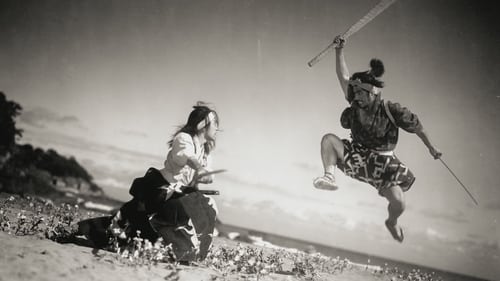
Old Priest Nikkan (uncredited)
Takezo abandona su condición de samurai errante para vivir tranquila y humildemente con su amada Otsu, rechazando trabajar como maestro samurai para el líder del clan más poderoso del Japón. No obstante, Takezo accede a luchar con el joven y habilidoso guerrero Sasaki Kojiro. El combate final tendrá lugar en la isla Ganryu.
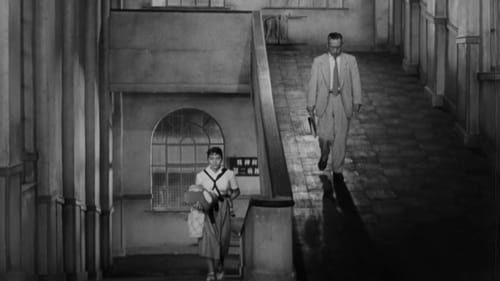
Workers' Older Family Member
Poco después de terminada la Segunda Guerra Mundial (1939-1945) Kiiji Nakajima, un anciano atemorizado por las consecuencias del bombardeo de Hiroshima y Nagasaki, vive obsesionado con la idea de construir un refugio antiatómico. Sin embargo, cuando algún tiempo después se plantea emigrar con su familia a Brasil para evitar la amenaza nuclear, su decisión tropieza con la incomprensión de todos los que lo rodean.
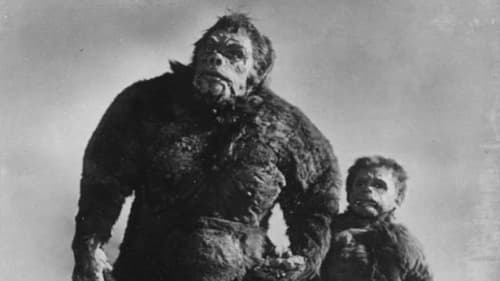
Tribal Chief
Three competing parties all race against time to track down an elusive creature known only as the Snowman.

Following the tragic death of his father, a young boy's family trains his horse to compete in the local derby.
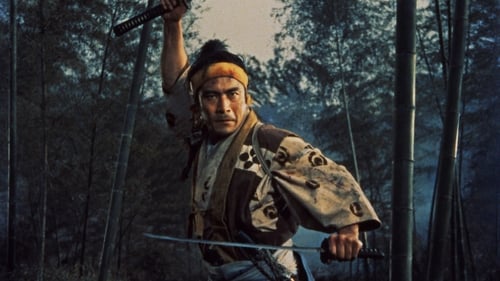
Old Priest Nikkan (uncredited)
Tras años recorriendo multitud de lugares, labrando su reputación como el más grande luchador del Japón, Takezo regresa a Kioto para enfrentarse al líder de la más prestigiosa escuela de samurais de la región. Como demostración de su valor, Takezo se dirige deliberadamente hacia una emboscada preparada por los seguidores de la escuela, mientras el joven y brillante luchador Sasaki Kojiro le observa, con el convencimiento de que puede derrotar a Takezo...
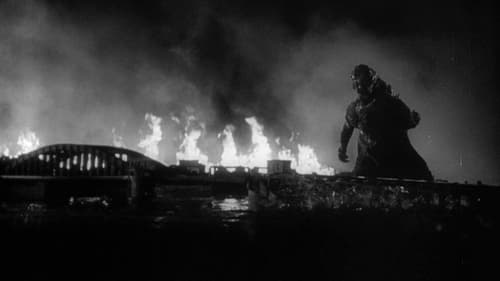
The Old Fisherman (uncredited)
Las misteriosas destrucciones de barcos en el Pacífico provocan el pánico. Los nativos de una isla afirman que el culpable es una criatura legendaria, Godzilla, un lagarto mutante convertido en un gigantesco monstruo a causa de unas radiaciones atómicas. Godzilla se dispone a atacar las principales ciudades del Japón.
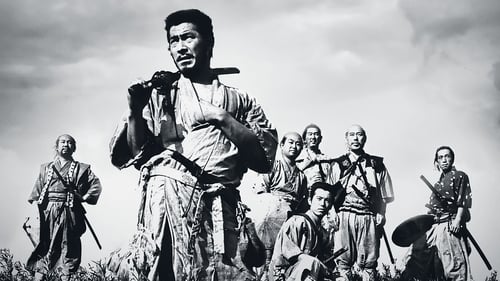
Gisaku, the Old Man
Una banda de forajidos atemorizan a los habitantes de un pequeño pueblo, saqueándolos periódicamente sin piedad. Para repeler estos ataques, los aldeanos deciden contratar a mercenarios. Finalmente, consiguen los servicios de 7 guerreros, 7 samurais dispuestos a defenderlos a cambio, tan solo, de cobijo y comida.

Jusaku Kawanabe
Story about a poor Japanese woman living near an American army base who resorts to prostitution.

A married couple looking for an apartment move in with the husband's co-worker, a widower. The husband becomes jealous of the widower and his wife.

Kira Uenosuke
Jidai-geki by Kiyoshi Saeki

1950s Japanese comedy.
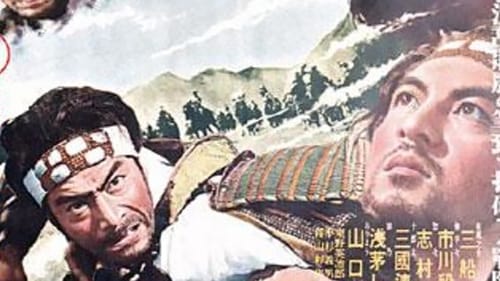
Soldiers Hayate and Yaheiji secretly escape from their besieged castle. Hayate has left behind his lover, Kano. On his way, Hayate is wounded and cared for by O’Ryo, who falls in love with him. But when Hayate accidentally kills her caretaker, he flees, with O’Ryo in pursuit. Subsequently, Hayate's comrade Yaheiji falls in love with Oryo. Kano, the lover left behind by Hayate, believes him dead, and becomes involved with another soldier, Jurota. When Jurota defects to the opposing army, he takes Kano with him. A double set of love triangles has developed, wherein each man and each woman loves one and is loved by another. Finally only combat and self-sacrifice can untangle the weave.
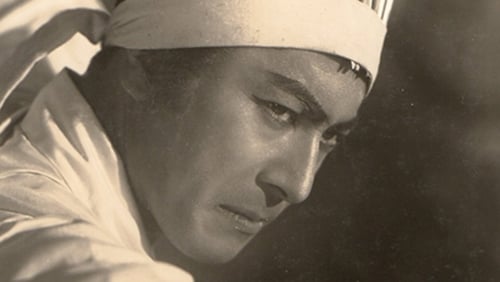
The famous showdown at Kagiya corner has been told many times, but never before with the realism and intensity of this version scripted by Kurosawa Akira and starring Mifune Toshiro as the famed swordsman who must face his best friend as they are forced to take opposite sides in a vendetta caused by the murder of a family member. Told mostly in flashback as the avengers await the arrival of their quarry, this film displays true heroism in the face of fear as most of the combatants, while of the samurai class are not skilled swordsmen. They contrast sharply with the true warriors involved in this battle. Araki Mataemon (Mifune), who was not only a direct student of Yagyu Munenori, but the founder of his own sword style under the Yagyu name is a powerful force ready to assist his brother-in-law against the murderer's allies that include not only another noted sword teacher, but the deadly spear of Katsumi no Hanbei.
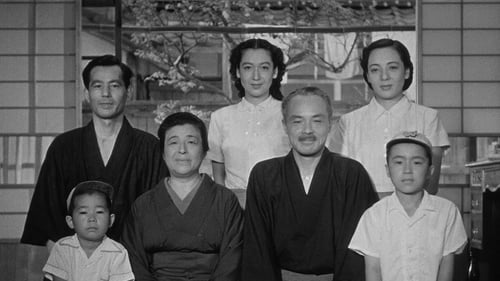
En el Tokio de la posguerra, los miembros de una familia convencional llevan una vida tranquila y serena. Su única preocupación es la soltería de Noriko, la hija mayor, que ya tiene 28 años. Pero la sociedad está cambiando, y Noriko, que trabaja y se divierte con sus amigas, no siente la menor necesidad de tener un marido. Sin embargo, su hermano considera muy imprudente la actitud independiente de la chica. (FILMAFFINITY)

(uncredited)
Though recognized worldwide almost exclusively for his colorful kaiju fare, director Ishirō Honda (Godzilla, Rodan, Mothra) was a natural humanist with a particular understanding of the relationship between people and their social environs. His debut fiction feature, The Blue Pearl (Aoi Shinju) – virtually unseen in the west until now – depicts the melodramatic, but keenly-observed interplay between a young man from Tokyo and two ama (pearl divers; literally “women of the sea”) in a superstitious coastal town. Though raised within the same tradition-bound crucible, the two women – Noe and Riu – are portrayed as diametric opposites; the former meek but affectionate, the latter strong-willed but jaded by a tryst with metropolitan life. Nonetheless, Honda provides equal weight to their desires and their ambitions to break free from the social mold imposed upon them from birth.
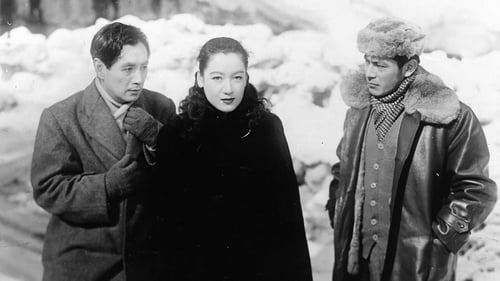
Junpei
Adaptación de la novela homónima de Dostoievski. Kameda, condenado a muerte por crímenes de guerra, en el último momento se salva de ser fusilado. La conmoción le provoca durante cierto tiempo fuertes ataques epilépticos; pero, al mismo tiempo, también se produce en él una profunda transformación, que algunos llaman "idiotez", pero que no es más que sencillez, bondad y una gran capacidad de amar.

The Ueki family may not be wealthy, but smiles are never in short supply. The father is awarded prize money for 25 years of service to his workplace, but has it stolen on the way home from the ceremony...
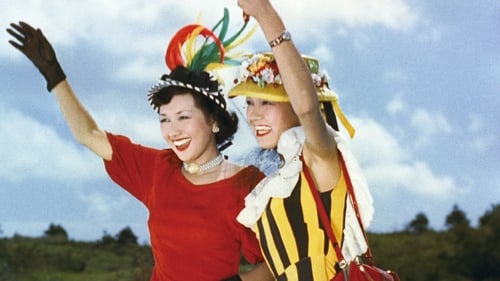
Una chica que había dejado su ciudad natal por la emocionante aventura de la gran ciudad regresa a casa años más tarde para una visita, lo que pronto de alguna manera causará escándalo.

Shige'emon Otobe
Jidai-geki by Nobuo Nakagawa. Most likely a star vehicle for Kanjuro Arashi

A romantic melodrama about the shifting relationship between Ryosuke and Miki as their precarious employment and social circumstances shift around them.
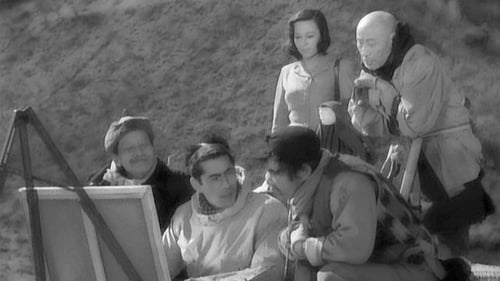
Old Man #1
Miyako, una famosa cantante de ópera, es fotografiada junto al pintor Aoe, en un balneario de Izu. La foto es publicada algunas semanas después en el periódico sensacionalista Amor, con un texto totalmente falso. El pintor decide demandar a la publicación y contrata a un ambicioso abogado.

Kuga
An attempt is made to suppress a journalist's investigation of collusion between a rural police chief and the local gangster bosses.
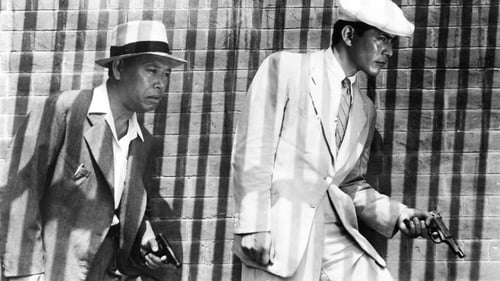
Old Landlord
Ambientada en la postguerra japonesa tras la II Guerra Mundial (1939-1945). Con la estructura del thriller americano y los convencionalismos japoneses, narra la historia de un joven detective al que roban su pistola. Agobiado por un sentimiento de deshonor más que de pérdida, emprende, con un veterano compañero, una frenética e incansable búsqueda que lo lleva a los bajos fondos de Tokyo.
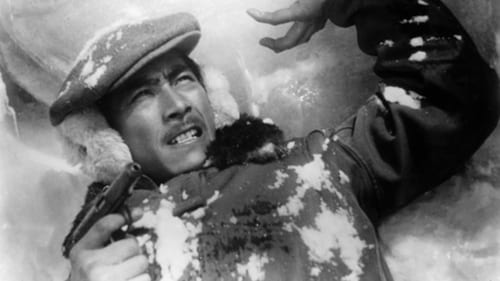
Haruko's Grandfather
Three bank robbers, Eijima, Nojiri, and Takasugi, flee the police and escape into the mountains. At an inn high in the Japanese Alps, Eijima and Nojiri encounter a young woman and her father, as well as Honda, a mountaineer. The inn folk do not realize their guests are wanted criminals and the visitors are treated with great kindness. Honda volunteers to lead them over the mountains, but Eijima's paranoia endangers all of them as they make the perilous trip.
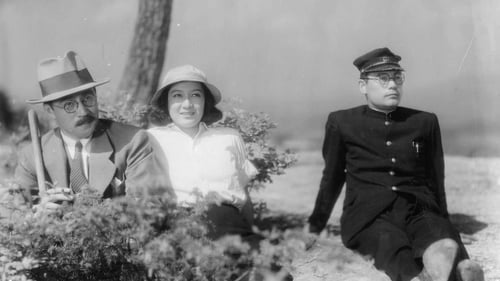
Mr. Noge
Yukie, hija de un profesor universitario, se queda conmocionada cuando su padre es expulsado de su cátedra por sus enseñanzas políticas, pero mucho más aún cuando su novio es arrestado y ejecutado bajo la acusación de espionaje.

Buddhist Priest Saiduchi
Sanshiro Sugata tiene que enfrentarse a nuevos retos y luchar contra adversarios cada vez más difíciles, pero no por ello dejará de aprender, a través de las artes marciales, una filosofía que le permitirá orientar su vida.
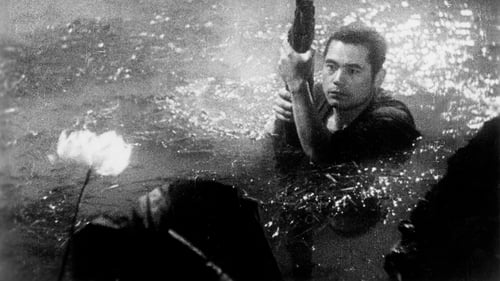
Buddhist Priest
1883, a principios de la era Meijii. Sanshiro Sugata es discípulo de Shogoro Yano, un maestro de judo. A lo largo de su aprendizaje y de sus combates aprenderá los principios y valores primordiales de una filosofía que le permitira guiar sus pasos en la vida.

Hiromasa Nomura World War II era film

Set in Qingdao, China, a Japanese company locates an office there and begins work and cooperation with a local Chinese company for business. Many Japanese engineers also move to China, with their families, for the company in order to construct a canal. There are young Chinese resisting the Japanese in this area.

A 1942 Jidaigeki by the veteran jidaigeki filmmaker Kunio Watanabe about the legendary warrior Musashibo Benkei
with Hideko Takamine portraying Minamoto no Yoshitsune (who is, of course, a man).
The film climaxes in the famous encounter/fight btw Benkei and Yoshitsune at the Gojo Bridge.

Hiryûji Murakami
This epic depicts the battle between Uesugi Kenshin and Takeda Shingen. The focus of the story is the struggle by the unit leader in charge of the main supply wagons and the supply troops to transport materiel to the Uesugi army. To this are added episodes involving an itinerant woman.

Jurobei, a kaisen tonya (wholesaler in port) in Awa, was wronged and killed on the day of the Dance Festival by the evil merchant & the chamberlin. His brother (Kazuo Hasegawa) vowed vengeance on the day of his brother's death. So every year the villains are worried during the Awa Dance Festival (which is part of the Obon festival), but nothing has ever happened, until seven years later...

The story is based on the serial novel by Tsunoda Kikuo.

The story is based on the serial novel by Tsunoda Kikuo.

A Japanese army engineer (Hasegawa) on the mainland must put his personal feelings for a beautiful Chinese woman (Ri) aside if he is to succeed at building a highway through the "bandit"- (aka anti-Japanese militia-) infested hinterlands.


Song of the White Orchid was a co-production of Toho and Mantetsu, the railway that served the colonial region of Manchuria, and the first film in the Kazuo Hasegawa/Shirley Yamaguchi (Ri Koran) “Continental Trilogy.” Handsome Hasegawa (representing Japan) runs up against an impertinent Yamaguchi (representing the continent); not surprisingly, in the course of the film the woman comes around and realizes the benevolent intentions of the Japanese. In Song of the White Orchid Yamaguchi leaves Hasegawa, who plays an expatriate working for the railway, because of a misunderstanding. She joins a communist guerilla group plotting to blow up the Manchurian railway. Learning of the subterfuge that led to the misunderstanding, she renews her faith in Hasegawa—and by extension Japan—and tries to undermine the plot.
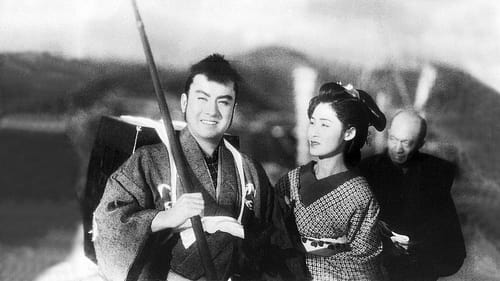
The film tells about the life of the former vassal of the Ako clan - Fuwa Katsuemon Masatane.

Zusho Shozaemon
Japanese film.

dir: Teinosuke Kinugasa

Dobu
An onnagata (female impersonator) of a Kabuki troupe avenges his parents' deaths. Remade in 1963 as Yukinojô Henge.


Uesugi Family Elder
This 1932 adaptation is the earliest sound version of the ever-popular and much-filmed Chushingura story of the loyal 47 retainers who avenged their feudal lord after he was obliged to commit hara-kiri due to the machinations of a villainous courtier. As the first sound version of the classic narrative, the film was something of an event, and employed a stellar cast, who give a roster of memorable performances. Director Teinosuke Kinugasa was primarily a specialist in jidai-geki (period films), such as the internationally celebrated Gate of Hell (Jigokumon, 1953), and although he is now most famous as the maker of the avant-garde silent films A Page of Madness (Kurutta ichipeji, 1926) and Crossroads (Jujiro, 1928), Chushingura is in fact more typical of his output than those experimental works. The film ranked third in that year’s Kinema Junpo critics’ poll, and Joseph Anderson and Donald Richie noted that 'not only the sound but the quick cutting was admired by many critics.

A rare film which depicts the tragic fate of a Christian lord who fought for his fate in the Edo period. Of note is Utaemon Ichikawa's extraordinary memorable final scenes in which he takes on his enemy with a gash in his forehead and a wild, unkempt mane.

Rokubei
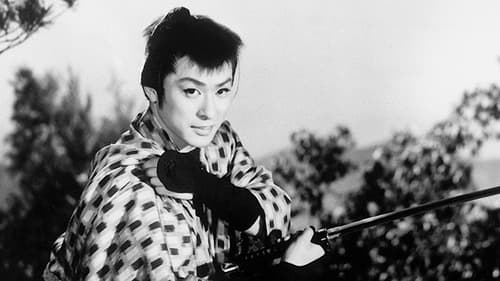
Hanjiro of Kusama searches for his little sister Oyuki, who went missing after being desecrated by Hikosaku Tokurai three years ago. The first film in a series about the adventures of the wandering yakuza Hanjiro from Kusama.
